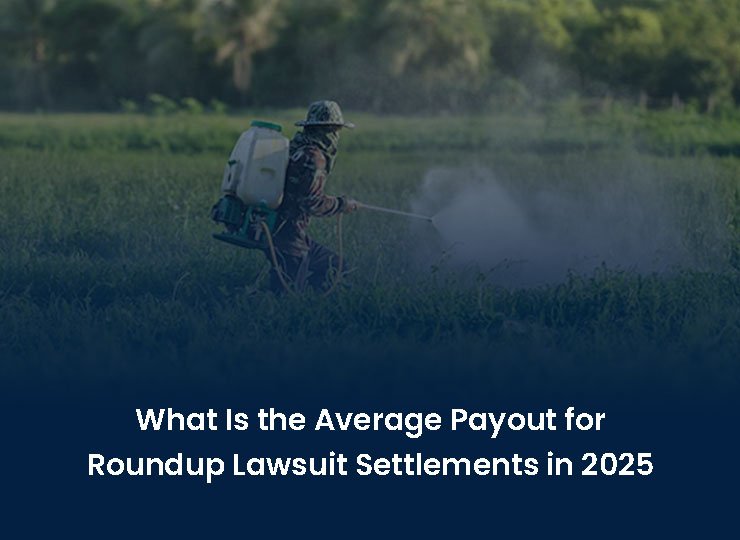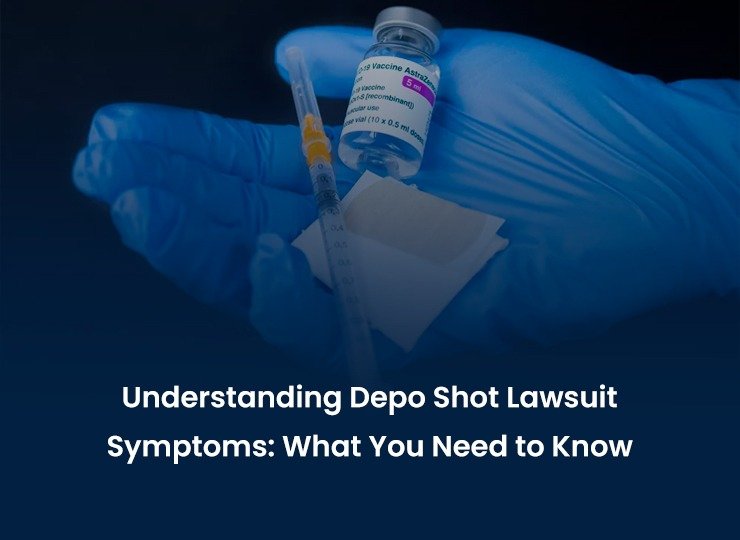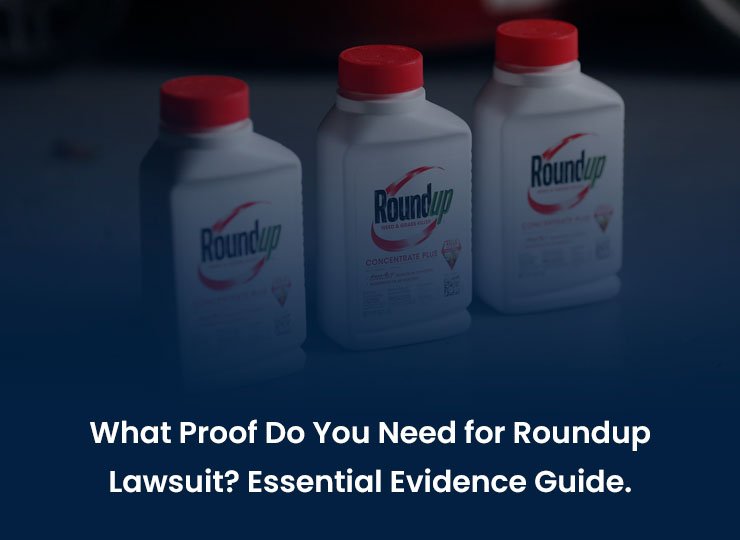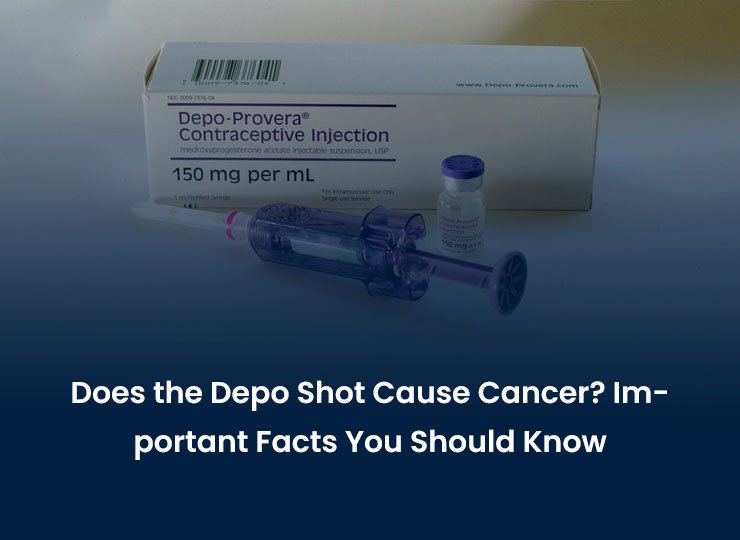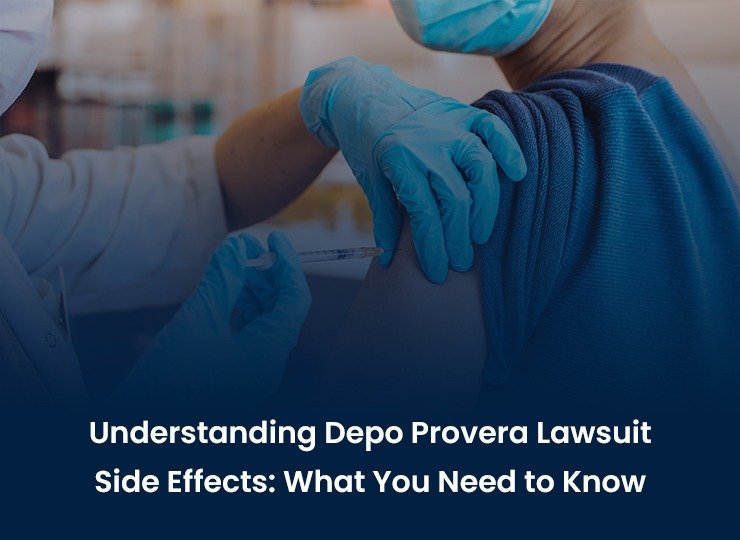Introduction to Roundup Lawsuits
- Roundup lawsuits involve claims that the weed killer causes cancer, including non-Hodgkin’s lymphoma, due to Roundup exposure (weedkiller Roundup).
- The average payout for roundup lawsuit settlements varies, but recent data shows a range of $5,000 to $250,000 or more per case. The average settlement amount for Roundup lawsuits is $160,000.
Many of these lawsuits are part of the ongoing Monsanto Roundup lawsuit, which alleges that Monsanto failed to warn users about the risks of Roundup exposure. Bayer inherited legal liability for Roundup lawsuits after acquiring Monsanto in 2018.
- Roundup litigation is ongoing, with many cases consolidated into multidistrict litigation (MDL) in federal court. Since 2015, Bayer has faced an increasing number of lawsuits due to Roundup’s active ingredient being linked to cancer.
- Experienced roundup lawyers can help plaintiffs navigate the complex legal process and secure compensation.
Depending on their circumstances, plaintiffs can pursue individual lawsuits or join a Roundup class action lawsuit.
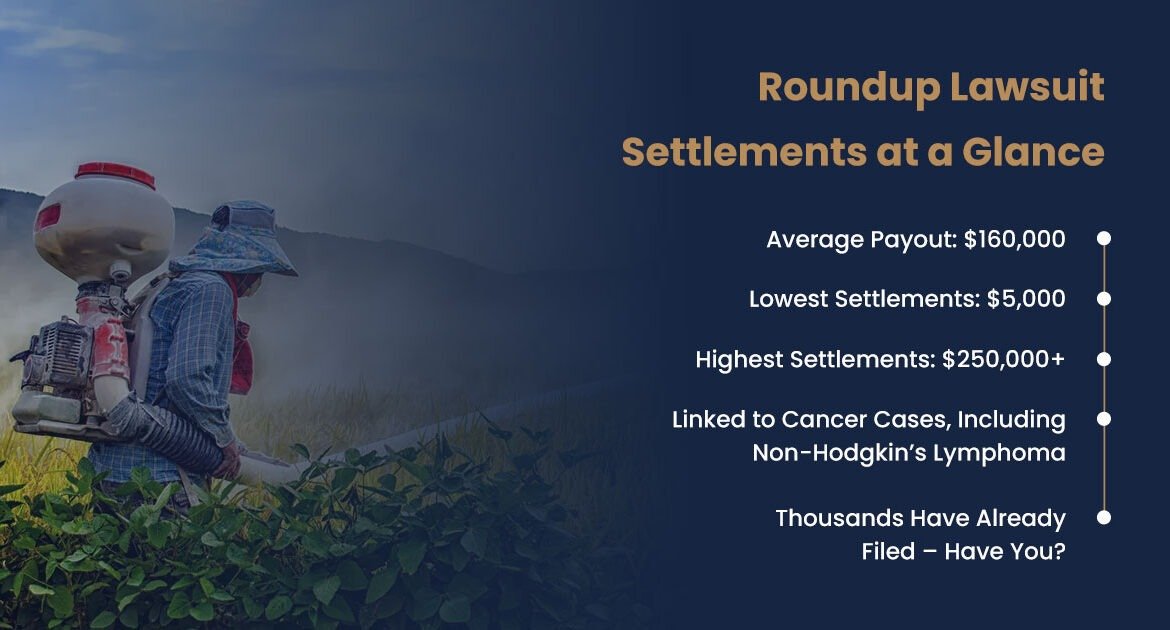
Understanding the Litigation Process
- The litigation process for roundup lawsuits typically involves filing a claim, which means you may need to file a Roundup lawsuit to initiate legal action, gather evidence, and negotiate a settlement or proceed to trial. Roundup claims can be filed as individual lawsuits or as part of a class action, depending on your circumstances.
- Roundup settlement amounts are determined by a points system, which considers factors such as the severity of the diagnosis, treatment needs, and ability to work. This is how roundup settlements are calculated, ensuring that payouts are distributed proportionally based on each case’s specifics.
- Punitive damages may be awarded in cases where the defendant’s conduct is deemed egregious, increasing the average payout for a roundup lawsuit settlement as a possible outcome.
- Bayer’s $10.9 billion settlement agreement included $9.6 billion for current claims and $1.25 billion for future lawsuits.
- A roundup lawyer can help plaintiffs understand the litigation process and maximize their potential settlement amount, whether pursuing individual lawsuits or joining class actions.
Health Effects of Roundup
Roundup exposure has raised significant health concerns, especially due to its active ingredient, glyphosate. Scientific research and regulatory agencies have linked exposure to Roundup with an increased risk of developing non-Hodgkin’s lymphoma, a serious cancer affecting the immune system. The International Agency for Research on Cancer (IARC) has classified glyphosate as “probably carcinogenic to humans,” highlighting the potential dangers of prolonged or repeated exposure to Roundup. In fact, studies suggest that individuals exposed to Roundup may face up to a 41% higher risk of developing non-Hodgkin’s lymphoma compared to those not exposed. A study from the University of Washington further supports this, showing that exposure to glyphosate may increase the risk of developing non-Hodgkin lymphoma by 41%. Beyond cancer, exposure to Roundup has also been associated with other health issues, including endocrine disruption, kidney and liver damage, and neurological disorders. These health risks are central to many roundup lawsuits, as plaintiffs seek compensation for the harm caused by the active ingredient in Roundup.
Eligibility and Qualifying Diseases
- To be eligible for a roundup lawsuit, plaintiffs must have been exposed to roundup and developed a qualifying disease, such as non-Hodgkin’s lymphoma. Individuals diagnosed with non Hodgkin’s lymphoma or who have developed non Hodgkin’s lymphoma after exposure to Roundup may qualify for legal action.
- The average payout for roundup lawsuit settlements is higher for cases involving more severe diagnoses and greater exposure to roundup. Scientific research and legal cases have established a link between glyphosate exposure and both non Hodgkin lymphoma and non Hodgkin’s lymphoma. The majority of Roundup cancer cases involve blood cancers that impact the production of white blood cells.
- Roundup cancer lawsuits require strong evidence linking the disease to roundup exposure, which can be established through medical records, a cancer diagnosis, and expert testimony. Filing a Roundup claim or a Roundup cancer lawsuit requires documentation of both the cancer diagnosis and proof of exposure to Roundup.
- A roundup lawyer can help determine eligibility and gather necessary evidence to support a claim.
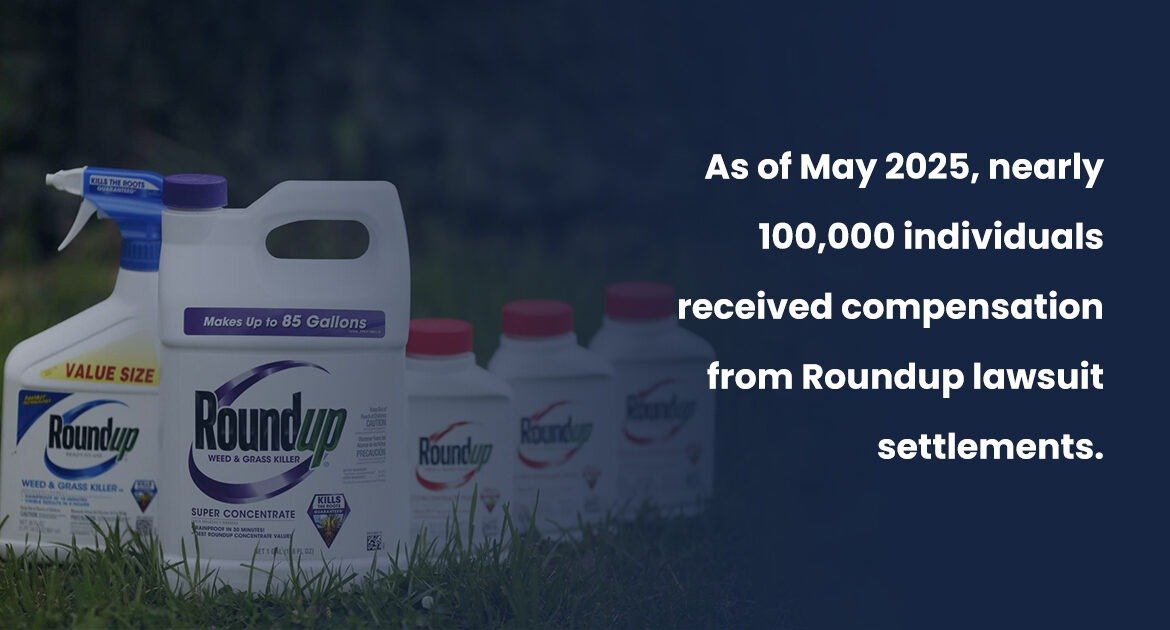
Settlements and Payouts
- Roundup settlements and payouts are typically made on a case-by-case basis, with the average payout for roundup lawsuit settlements ranging from $5,000 to $250,000 or more. The average roundup settlement, average settlement, and roundup payout can vary widely depending on the specifics of each case and the factors involved.
- The roundup settlement point system assigns a score to each case based on factors such as diagnosis severity and exposure level, determining the settlement amount. Roundup settlements are calculated by evaluating these factors, and the roundup settlement amount is paid out from a designated settlement fund established for claimants.
- Roundup lawsuit payouts may be subject to taxes, depending on the type of damages awarded and the plaintiff’s individual circumstances. Roundup settlement payouts, including the roundup lawsuit payout, are typically distributed after the roundup settlement checks mailed process is completed, with each claimant receiving a roundup settlement check according to the agreed terms. Components of the payout may include compensation for pain and suffering, reimbursement for medical bills, and in some cases, million in compensatory damages awarded to plaintiffs. Age at the time of diagnosis can influence settlement amounts.
- A roundup lawyer can help navigate the settlement process and ensure the best possible outcome for the plaintiff, whether through jury awards, a bayer roundup settlement, or another payout for a roundup claim.
Factors Influencing Settlement Amounts
Settlement amounts in Roundup lawsuits can vary widely, and several key factors play a role in determining how much compensation a plaintiff may receive. The severity of the plaintiff’s diagnosis is a major consideration—those who have developed aggressive forms of cancer, such as non-Hodgkin’s lymphoma, as a result of exposure to Roundup, often qualify for higher settlement amounts. The extent and duration of exposure to Roundup are also critical, as greater exposure can strengthen the link between the product and the illness. Additionally, the financial impact on the plaintiff, including medical expenses, lost wages, and other related damages, is carefully evaluated during settlement negotiations. The level of toxic exposure also plays a role in determining settlement amounts. Each case is unique, and the final average roundup settlement amount reflects the specific circumstances and losses experienced by the individual. As a result, settlement amounts in roundup lawsuits can range from tens of thousands to millions of dollars, depending on the evidence and damages presented.
Class Action Lawsuit and Statute of Limitations
- A class action lawsuit allows multiple plaintiffs to join together and pursue a single claim against the defendant, which can be beneficial for roundup lawsuits. Many of these cases are handled in federal courts as part of roundup multidistrict litigation, and class actions may result in a global settlement that resolves numerous claims at once.
- The statute of limitations for filing a roundup lawsuit varies by state, but typically ranges from 1 to 3 years after diagnosis or exposure. Each state has a statute of limitations allowing 2-3 years for victims to file a lawsuit from the date of their diagnosis or injury. This legal deadline is known as the roundup lawsuit statute, and missing it can bar your claim.
- Roundup lawsuit eligibility requires prompt action to avoid missing the filing deadline and losing the right to pursue a claim. Future roundup claims may benefit from recent legal strategies, but acting quickly remains crucial to preserve your rights.
- A roundup lawyer can help determine the best course of action and ensure timely filing of the lawsuit.
Working with a Legal Team
Navigating a Roundup lawsuit can be complex, which is why working with an experienced legal team is essential for plaintiffs seeking fair compensation. A knowledgeable Roundup lawyer can guide clients through every stage of the legal process, from gathering evidence and filing a claim to negotiating a settlement or taking the case to trial. The right legal team will have a proven track record in handling roundup lawsuits and a deep understanding of both the legal and scientific aspects involved. Plaintiffs should look for a legal team that offers free consultations, works on a contingency fee basis (meaning no upfront costs), and is known for clear communication and responsiveness. By partnering with a skilled Roundup lawyer, plaintiffs can improve their chances of achieving a favorable outcome and securing the compensation they deserve.
Receiving Settlement Checks
After a settlement agreement is reached in a Roundup lawsuit, plaintiffs can expect to receive their settlement checks, which represent the compensation awarded for their injuries and losses. The process typically begins once the defendant pays the agreed-upon settlement amount, which is then sent to the plaintiff’s attorney. The legal team is responsible for distributing the funds to the plaintiff, after deducting any legal fees and costs. In some cases, settlement checks may be structured to provide periodic payments over time to cover medical expenses , rather than a single lump sum, depending on the terms of the settlement agreement. It’s important for plaintiffs to work closely with their legal team to understand the details of their settlement, the expected timeline for receiving funds, and any steps required to finalize the process.
Tax Implications of Settlements
Understanding the tax implications of Roundup settlements is crucial for plaintiffs to avoid unexpected liabilities. Generally, compensation received for personal physical injuries, such as those resulting from non-Hodgkin’s lymphoma caused by Roundup exposure, is not subject to federal income tax. However, punitive damages—awarded to punish the defendant for egregious conduct—are typically taxable and must be reported as income. Additionally, any interest earned on settlement funds may also be subject to taxes. Because tax laws can vary by state and individual circumstances, it’s important for plaintiffs to consult with a tax professional or their legal team to ensure compliance and proper reporting. By seeking expert advice, plaintiffs can better understand their obligations and avoid surprises when it comes time to pay taxes on their Roundup settlement.
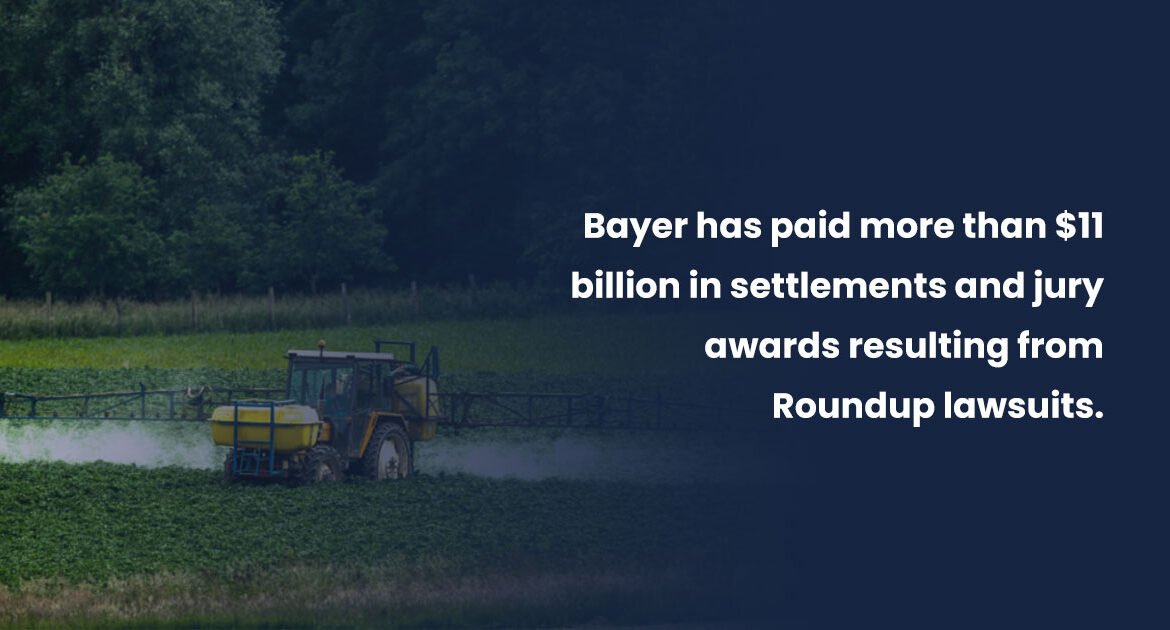
Calculating Settlements and Supreme Court Rulings
- Roundup settlement amounts are calculated based on a variety of factors, including the severity of the diagnosis, treatment needs, and ability to work. In many roundup cases, legal action has been taken after roundup exposure led to serious health issues, and each roundup case is evaluated based on these circumstances.
- The Supreme Court has ruled on several cases related to roundup lawsuits, shaping the legal landscape and influencing settlement amounts. Notably, roundup verdict and roundup verdicts in high-profile cases, including those in philadelphia court, have resulted in significant jury awarded damages to plaintiffs.
- Average payout for roundup lawsuit settlements may be impacted by Supreme Court rulings, which can affect the points system and settlement negotiations. Jury awards in roundup cancer trial proceedings are often determined by how convincingly it is shown that roundup caused injuries or illnesses.
- A roundup lawyer can help stay up-to-date on the latest developments and ensure the best possible outcome for the plaintiff, as roundup plaintiffs continue to play a key role in shaping legal outcomes.
Conclusion and Next Steps
- The average payout for roundup lawsuit settlements varies, but plaintiffs can secure significant compensation with the help of an experienced roundup lawyer.
- Roundup litigation is ongoing, and new cases are being filed regularly, making it essential to stay informed and take action promptly.
- A roundup lawyer can provide guidance on the litigation process, help determine eligibility, and maximize the potential settlement amount.
- If you or a loved one has been diagnosed with non-Hodgkin’s lymphoma after exposure to roundup, consider consulting a roundup lawyer to discuss your options and pursue a claim.
Take Action Now
If you or a loved one have been affected by Roundup exposure and are seeking compensation, don’t wait to protect your rights. Applying for a free case evaluation with an experienced roundup lawyer is a crucial first step toward understanding your eligibility and potential settlement amount, including what is the average payout for roundup lawsuit . Legal teams specializing in Roundup lawsuits can guide you through the process, help gather necessary evidence, and fight to secure the compensation you deserve. Whether you choose to file an individual lawsuit or join a class action, professional legal support increases your chances of a successful outcome. Contact a Med Compensation legal team today to apply for your free case evaluation and take the first step toward justice and financial recovery.


